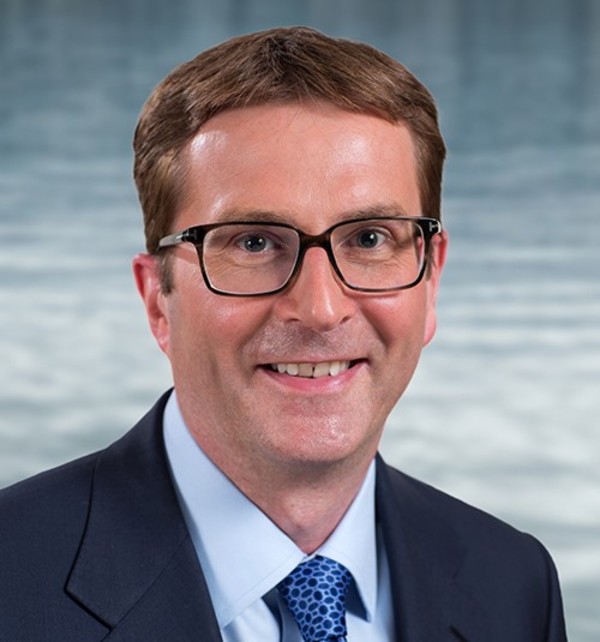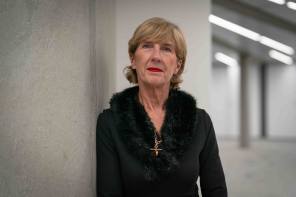

He says that the NHS’s 10-year plan, published in January, sets out its intention to use more technology to speed up treatments or push people through the system more efficiently through electronic triage.
Mr Major manages an investment trust that selects stocks which could be set to benefit from this transformation – one that is not just happening in the UK but in other parts of the world as well, most notably in the US.
“The NHS is under so much pressure it’s running to stand still, but where we will see the changes [first] is in the US,” he says.
“The US runs a for-profits system and there’s no greater incentive to invest than the opportunity to make a profit. The US is the country where there will be changes first.”
Healthcare spending
Spending on the US healthcare system accounts for $2.3tn (£1.8tn) of an economy that was $19tn in total in 2017. Mr Major believes that simple changes in practices could save a considerable amount of money.
For example, many people have diabetes and they have to manage their blood sugar levels. As a result, patients often have to go to their doctor every two weeks to check their blood sugar, to see how it is responding to different drugs, and that may not always be close to when they have eaten something, which is a true indication of sugar levels in the blood.
Mr Major, a former investment banker, adds: “But if you measured it when you had a meal, will the blood sugar go sky high? That’s how you can fundamentally change treatment.”
A lot of the changes in healthcare systems, which could have a huge impact on costs, are likely to come in the area of diagnostics, he points out.
Giving the patient more responsibility at home, for example, by having them measure their own blood pressure, or being able to diagnose a child’s ear infection, could free up doctors’ time.
Similarly, if the first port of call was an app on a smartphone, this could prevent a lot of time-wasting at doctors’ surgeries.
It is these types of diagnostic and technology companies that the trust invests in. Mr Major, who invests in a maximum of 35 stocks, explains: “We have a high-level conviction and we end up owning a lot more of each individual company, and the overall performance of the fund is going to be influenced by each company.”
After his company Bellevue Advisors ran BB Biotech – which invests in new drugs – and was successful, it was decided two years ago that healthcare was a good investment story. “There are few investment stories where you’ll find people as optimistic as healthcare investors,” he says.
“Once people have food in their belly and a roof over their head, the next thing they worry about is not dying. The population is increasing and getting older, and it’s getting richer. Although we want better healthcare and recognise the demographic changes nobody is prepared to put their hand in their pockets to pay more than they do.
“Either we fix the system or we spend more money on it. By the age of 65, the vast majority of us is living with a chronic medical problem.”
Many of these conditions can be managed, and a lot of time taken out of the NHS with missed doctors’ appointments by using an app, similar to the 111 service, that can direct people to the right place – for example, to specially trained nurses who can deal with more mundane tasks.
Mr Major says: “The NHS has committed to this in the report – all the services they’re conducting with third parties. If I had one fear about this it’s a Corbyn government: were it to happen, it seems more resistant to the idea of an NHS working with external providers.
“The staff issue is hard to fix. We’re all competing for doctors and nurses. We probably won’t have enough of them, so we need to have things that improve the productivity. But there’s an enormous opportunity for companies that enable a lot of this to happen.”
Greater technology in the US
About 90 per cent of the trust’s stocks invest in US companies. The reason for this is that there is much greater commercial development of healthcare technology in the US than in the UK.
“If I had a good idea, I’d get on a plane and go to America. The reality is that American companies do dominate innovation and will continue to do so,” Mr Major says.
The fund’s market cap is just over £500m, and the total return since launch is just under 50 per cent, according to FE.
It is at a small premium to net asset value, and he believes the prospects for radical transformation of the way we treat patients are huge for the healthcare investor.
Melanie Tringham is deputy features editor at Financial Adviser and FTAdviser



